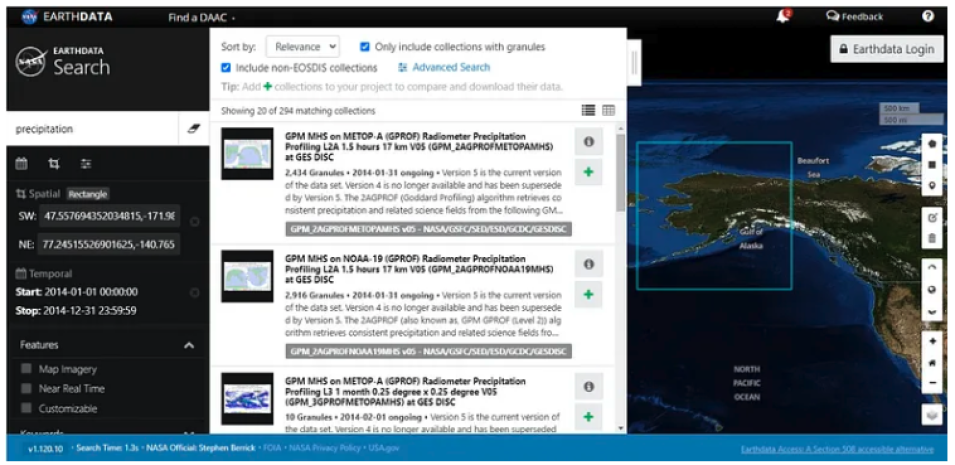Are you ready for an acronym within an acronym? Allow me to introduce you to IMPACT’s ARC team. ARC stands for Analysis and Review of CMR, which in its entirety is Analysis and Review of the Common Metadata Repository. But it’s quicker to say ARC. And we’re back to talking about metadata again, or data that helps you find the data you want to find.
The ARC project assists in making NASA’s Earth science data easier for both scientists and the general public to find, access, and use. ARC’ s contribution to this effort focuses on metadata and the role it plays in connecting users to data. You can search for NASA Earth science data using the Earthdata Search website which allows you to enter a search term (like you would in Google) as well as filter your search by a variety of parameters such as location and time. For example, you could search for “precipitation” and limit your search to the state of Alaska for the year 2014. The search returns a list of datasets meeting that criteria if the metadata are accurate enough.
All of the information you encounter in Earthdata Search is pulled directly from the Common Metadata Repository (CMR) database. Each of NASA’s Earth science datasets is described by a metadata record stored in the CMR database. The metadata record contains important information about the dataset including a descriptive title, when and where the data were collected, what instruments collected the data, and how the data can be accessed. This information, contained in the metadata record, is what is queried when a user searches.
The above scenario illustrates how metadata connects users to data and why maintaining these records is important. If the dataset metadata record is missing or outdated, then that dataset may not appear in your search result even though it actually matches your criteria.
